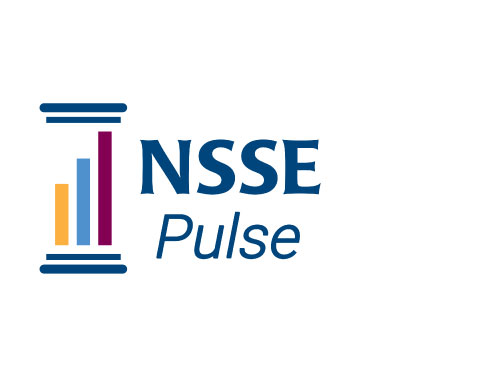
In fall 2020 NSSE offered a special survey at no charge at the start of a very uncertain academic year. The short online survey—NSSE Pulse—included selected questions from NSSE that are critical to persistence. Results helped 190 participating institutions in the U.S. and Canada diagnose shortcomings and strengths and inform campus action.
Aggregate results from approximately 120,000 students are featured in the report, The COVID Pivot and Quality of the Undergraduate Experience: NSSE Pulse Project Report.
There are eight headline findings:
- The semester was tough, but most students evaluated their overall educational experience positively.
- A majority of students said their institution supported their academic success.
- Sufficient study space was a challenge for many remote learners.
- Students rated their quality of interactions with advisors the highest, followed by faculty and other students.
- Despite physical distancing requirements and shifts to remote instruction, students’ sense of belonging—an expression of their connection to the institution and feeling valued—was strong.
- Student satisfaction with Internet access was lowest among students living on campus.
- The small share of students experiencing mostly in-person instruction had more favorable learning experiences than those in mostly remote or hybrid courses.
- Students largely believed their institution helped keep them safe and healthy.
Generally, institutions and students managed reasonably well in fall 2020 despite dramatically changed circumstances. Open-ended comments affirmed that students appreciated being able to continue their education despite these changes. Students were more critical of unclear communications about how the pandemic would affect course availability, faculty furloughs, academic calendars, and the status of residence and dining facilities. In addition, students expressed stress and fear of potential burnout with new calendars and no breaks. Many students noted the need for access to counseling and other mental health services to ensure their well-being, and some indicated greater needs given pandemic stressors.
Students also indicated feeling support for their academic success and overall well-being. Students’ sense of belonging results were not much different than pre-pandemic levels, with an understandable reduction in students reporting that they feel a part of the community at the institution. Overall, findings suggest that institutions were responsive to students’ needs during the fall.
Although NSSE Pulse aggregate results provide insight on the undergraduate experience broadly, the results are most meaningfully examined within participating colleges and universities. Disaggregation by factors such as course modality and residence, and student characteristics including year in college, first-generation status and racial/ethnic identity are particularly useful, as this is where significant variations exist. Pulse participating institutions are encouraged to examine their results using relevant filters to gain a more nuanced understanding of what students are experiencing and whether some students need particular attention.

